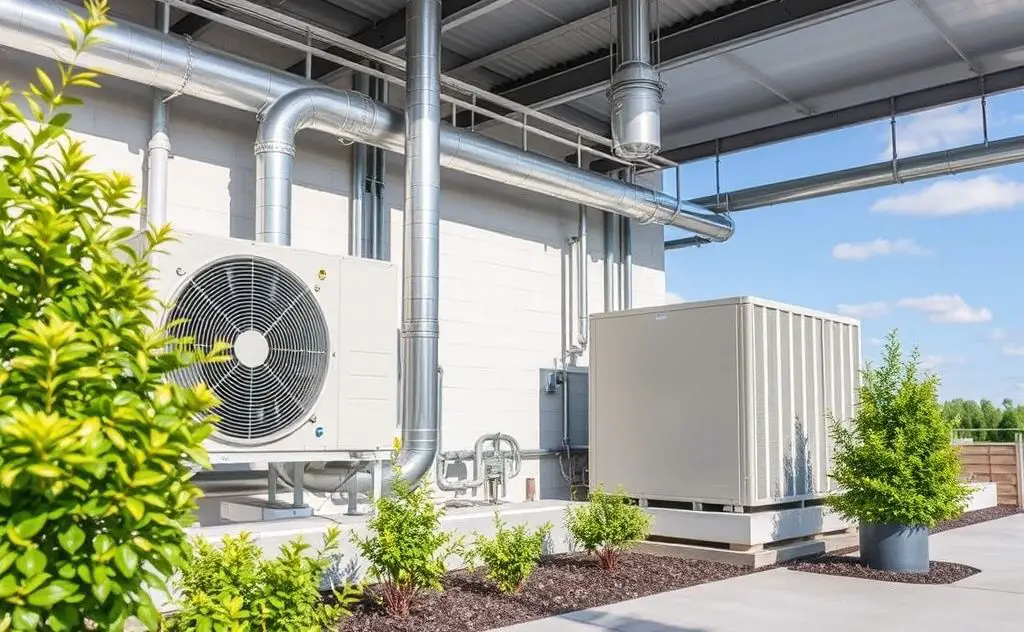Clean HVAC systems enhance energy efficiency by reducing strain on equipment, lowering energy consumption, and extending system lifespan, leading to significant cost savings.
A clean HVAC system isn’t just about better air—it’s a hidden energy-saving powerhouse. Research shows properly maintained systems use 11-30% less energy while delivering superior performance. Here’s why dirty coils and clogged filters cost you money.

The Science Behind HVAC Energy Savings
HVAC systems account for 48% of home energy use according to U.S. Department of Energy data. When components get dirty:
- Dust on coils acts like insulation, reducing heat transfer efficiency
- Clogged filters force fans to work 27% harder (NADCA study)
- 1/8″ of dirt on blower wheels cuts airflow by 20%
Real-World Impact
A 2022 case study of Florida office buildings showed:
| Maintenance Level | Energy Use (kWh/sq ft) | Savings |
|---|---|---|
| Neglected systems | 4.2 | – |
| Basic cleaning | 3.7 | 12% |
| Full NADCA cleaning | 3.0 | 29% |

Critical Components That Affect Efficiency
1. Coils: The Silent Energy Thieves
Dirty evaporator and condenser coils can increase energy consumption by 37%. Annual cleaning with specialized tools maintains peak heat transfer.
2. Air Filters: More Than Just Dust Catchers
MERV 8-13 filters strike the perfect balance between air quality and airflow. Change them every:
- 1-2 months during peak seasons
- 3 months for light use periods
3. Ductwork: Hidden Energy Leaks
Leaky ducts waste 20-30% of conditioned air. Sealing with mastic paste can yield $300+ annual savings.
Maintenance vs. Replacement Costs
Regular cleaning extends equipment life by 5-15 years. Compare the costs:
- Professional cleaning: $300-500 annually
- New HVAC system: $5,000-12,000
- Emergency repairs: $800+ per incident
For optimal performance, pair cleaning with smart thermostat controls that learn usage patterns.
Commercial vs. Residential Savings
While homes see 11-30% savings, commercial buildings often achieve more:
- Restaurants: 34% reduction (ASHRAE data)
- Hospitals: 28% savings from ECM fan upgrades
- Schools: 22% lower costs after duct sealing
The National Renewable Energy Lab found that combining HVAC cleaning with other efficiency measures can double savings.
Seasonal Maintenance Checklist
Spring (Pre-Cooling Season)
- Clean condenser coils
- Check refrigerant levels
- Inspect drain pans
Fall (Pre-Heating Season)
- Replace furnace filters
- Clean burners
- Test safety controls
